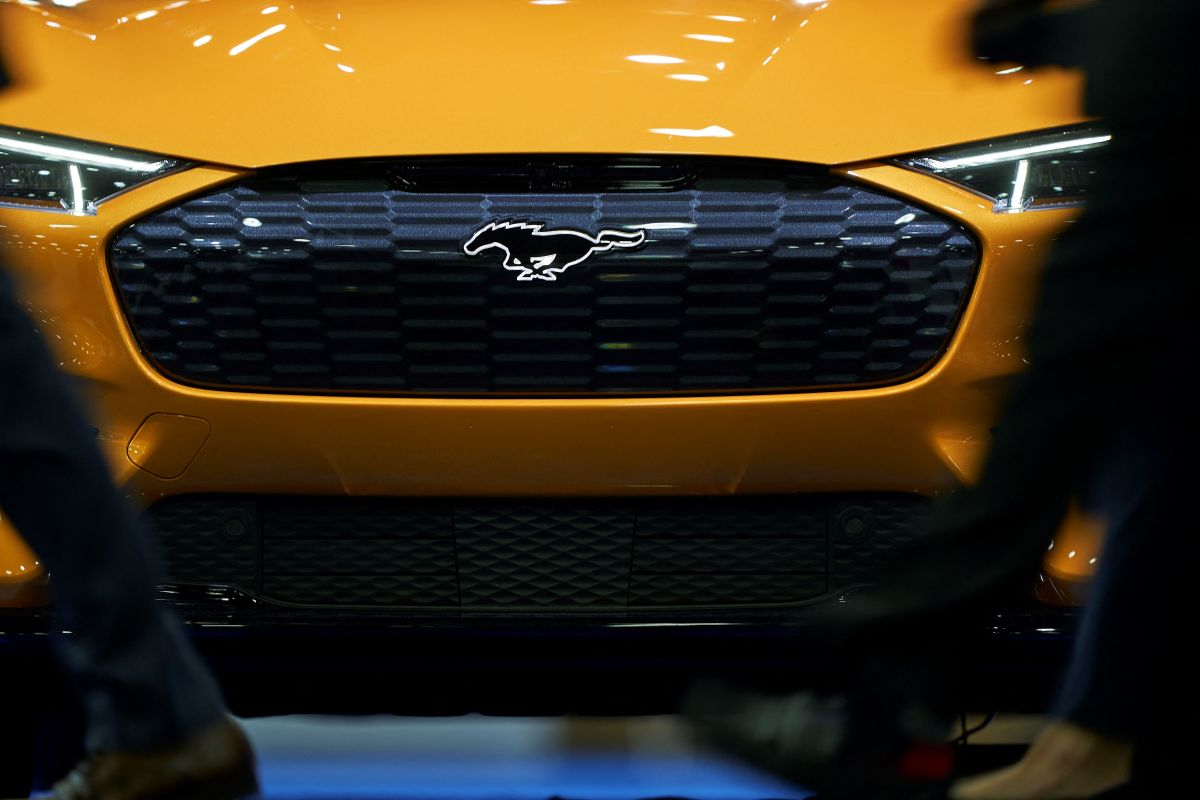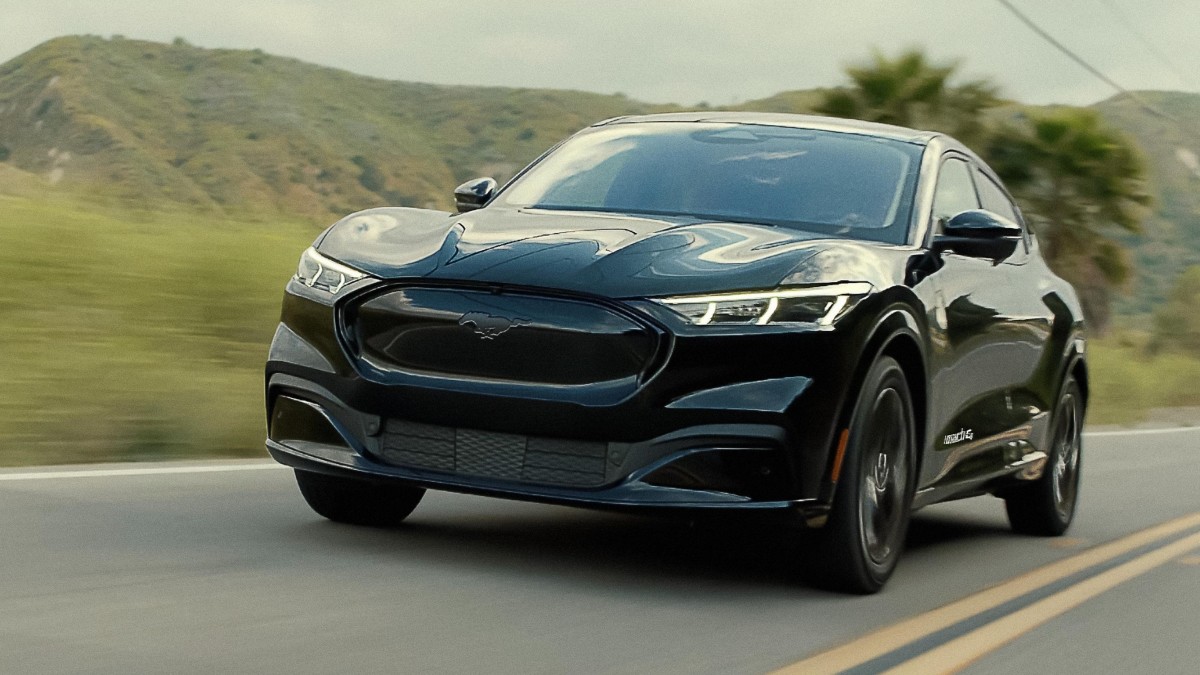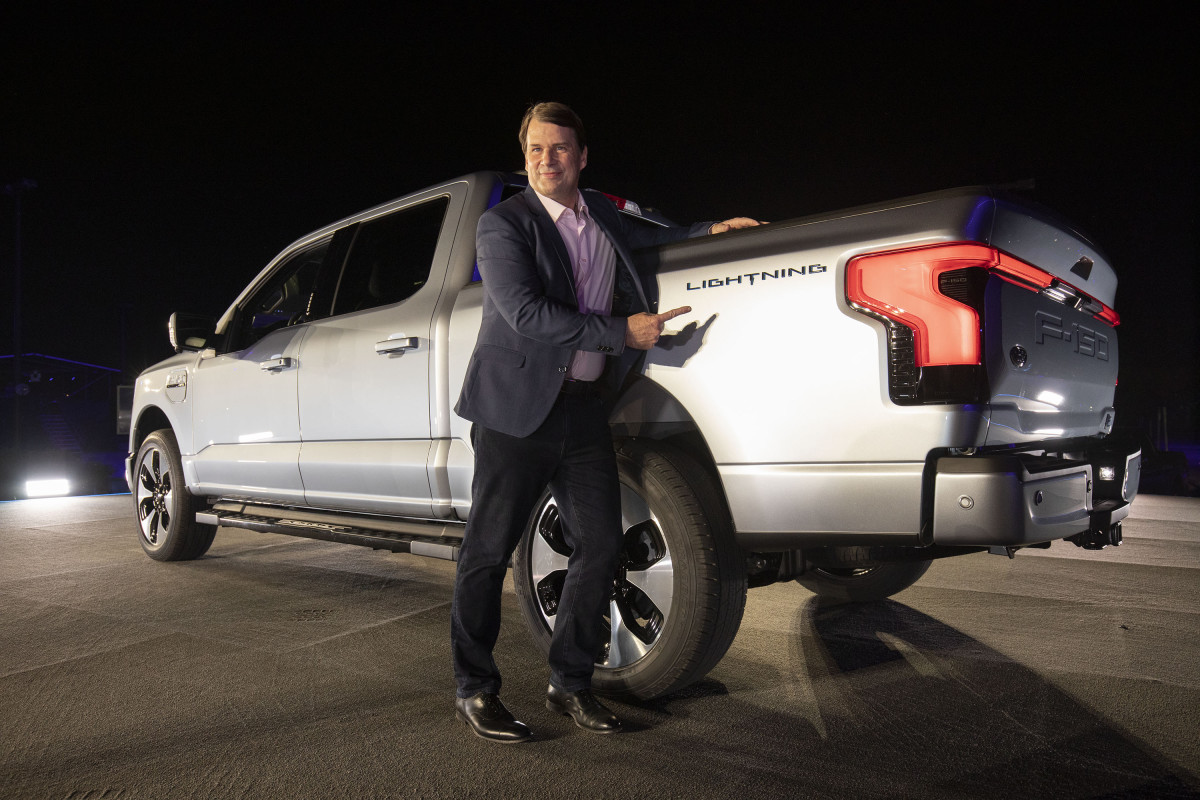
Despite Ford's (F) strategy with offering electric vehicles like the Mustang Mach-e and the F-150 Lightning electric pickup truck, the Blue Oval is starting to switch gears when it comes to their EV strategy.
Related: European auto figurehead proposes a unique alliance to combat Chinese competiton

Ford Motor Company
As per reports by Bloomberg and Automotive News, Ford is backtracking on a project involving a three-row EV in lieu of a new, smaller vehicle platform.
Sources at the Blue Oval have said that the company is delaying work on a planned series of large, three-row electric vehicles similar in size to Ford's Explorer SUV and Aviator SUV from its luxury Lincoln brand. Instead, resources are being shifted to work on smaller, more affordable EVs.
The planned big electric cruisers were expected to go on sale in early 2025, however, sources said that resources have been shifted at Ford to create three models — a small SUV, a pickup and a "ride-hailing vehicle" sitting on an all new small vehicle platform.
More Business of EVs:
- A full list of EVs and hybrids that qualify for federal tax credits
- Here’s why EV experts are flaming Joe Biden’s car policy
- The EV industry is facing an unusual new problem
The first of the vehicles are due in late 2026, and is anticipated to sell for around $25,000.
The secret behind-the-scenes moves are reflective of those teased by Ford CEO Jim Farley, who expressed the need to compete with domestic rivals like Tesla (TSLA) during Ford's earnings report in early Feburary.
There, he acknowledged the existence of a previously unknown "skunkworks team" has been working on the development of a brand new platform for electric vehicles — expressly stating that it is focused on smaller, "low cost" EVs for a wider base of customers and profitable for the company.

“All of our EVs teams are ruthlessly focused on cost and efficiency in our EV products, because the ultimate competition is going to be the affordable Tesla and the Chinese OEMs,” Farley said on the Feb. 6 earnings call.
These moves are expected to be the first strategy in Ford turning around its money-losing EV business, which recorded a loss of $4.7 billion in 2023. The Dearborn-based automaker has said it expects to lose another $5 billion to $5.5 billion this year on EVs.
Furthermore, the threat of Chinese imports from companies like (BYDDY) are still on the mind of figureheads like CEO Jim Farley, who sees a large chunk of his precious market share evaporated if they were to begin selling stateside.
"If you cannot compete fair and square with the Chinese around the world, then 20 to 30 percent of your revenue is at risk," Farley said at a recent industry event. "We have to fix this problem. We have to address this."
Related: Veteran fund manager picks favorite stocks for 2024







